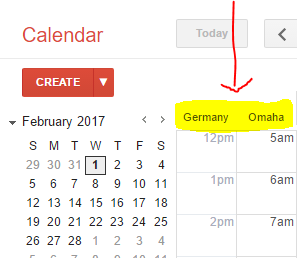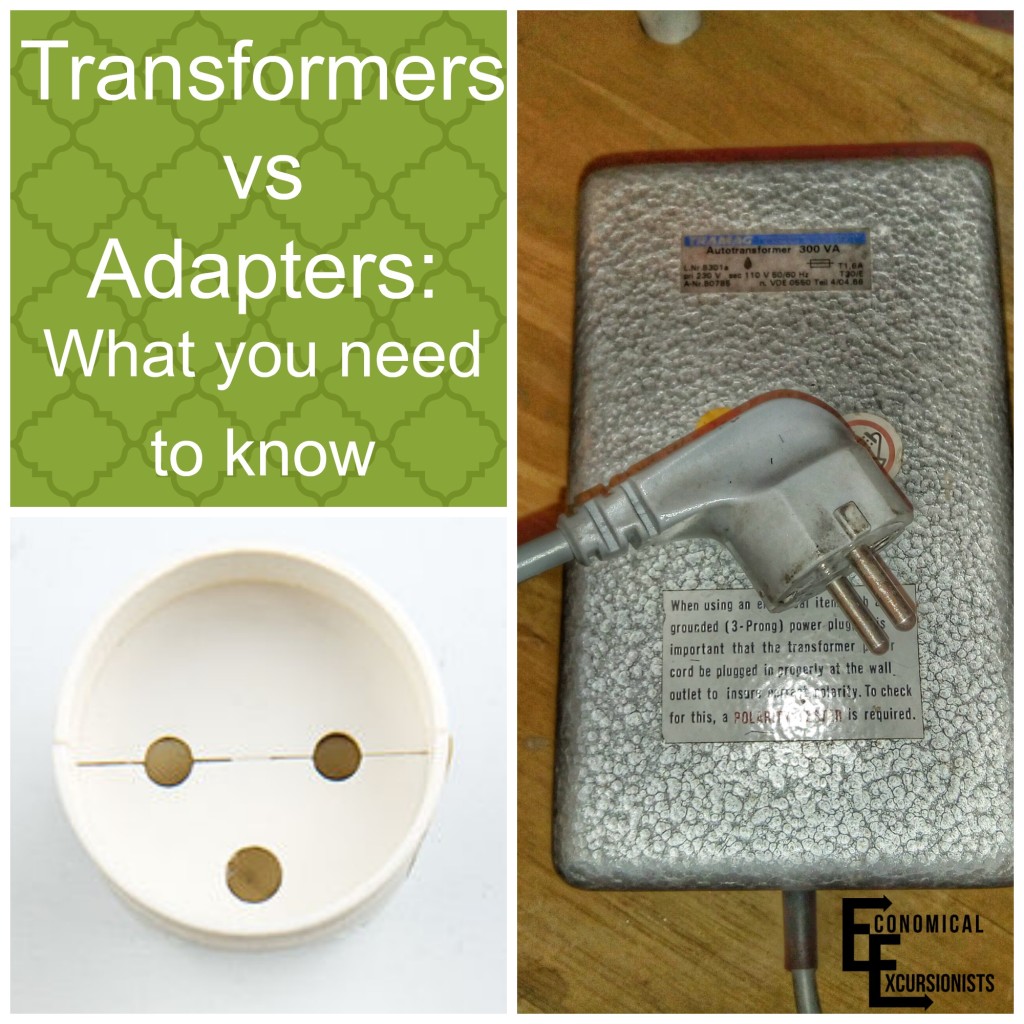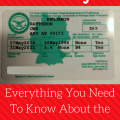[This post may contain Amazon affiliate links. Thank you for helping to support the maintenance of the EconomicalExcursionist site so that we can continue to give you awesome travel tips and content.]
Let me take a guess.
You just found out you are going to be stationed in Germany. So now, you are here, doing what every good military wife does when they get their new orders (or even rumors of a new possible duty station) aren’t you?
Don’t lie, it isn’t even official, but you’ve already taken to the internet to scour it from top to bottom to find out just what you and your family is about to get yourselves into with an OCONUS PCS.

You might be hesitantly optimistic about jetting off halfway around the world. Maybe you are dragging your heels harder than a the kids in Heavy Weights going to fat camp. On the other hand, maybe you’ve already went and bought pants a size up because you know that aint nobody and aint nothin’ is going to stop you from trying the hundreds (yes, 100s) of varieties of schnitzles!
It really doesn’t matter what side of the fence you are in, because whether you have already created a whole Pinterest board dedicated to all the places you are going to travel or if you have already started the mourning process of saying goodbye to your favorite local coffeehouse, mexican food and air conditioning (oh, and family…yeah, we better include them in the batch here, too) I know that you need some facts about your new life in Deutschland.
Stationed in Germany Quick Facts
Time Zone
Germany is on the UTC+1, also known as Central European, time zone. This means that there is a 6 hour difference (ahead) for EST, 7 hour difference for CST and 8 hours for PT.
For example, when it is
Noon in DC: it is 1800 in Germany.
Noon in Chicago: 1900 in Germany
Noon in LA: 2100 in Germany
Tip: Use Google Calendar and “Add a Time Zone” that way you’ll always know what time it is back home and never have to risk calling your best friend accidentally at 2 am!

Money

No, Germany doesn’t use Monopoly money (although that is what it pretty much looks like!) Germany is on the Euro, as is a large portion of other European countries. This makes traveling pretty darn easy as you don’t have to get a million different currencies each time you cross a border. While some countries still use their own currencies, credit cards (that have no foreign transaction fees!) are a great way to avoid having to get cash out. As things continue to change in the world, the value of the Euro goes up and down. Typically, it is slightly worth more (meaning a dollar is worth less than one Euro), but this can change as often as daily. You can quickly and easily check the current exchange rate with a varity of apps, or just simply google “1USD to Euro” and Google will give a handy chart. (Tip: you can actually do any amount and it will calculate the rate ex: $24 to Euro)
So, for example, today’s exchange rate is 1 euro= $1.08 so for every Euro you spend, you are really spending One Dollar and 8 Cents
Tip: Get a Service Credit Union or USAA account and use ATMs. They often have the best rates for foreign transactions fees and can actually reimburse some ATM fees as well. Check their websites for current fee schedules.
Economical Excursionist Tip: When traveling, never use exchange offices (especially at airports!). Instead, just always wait to arrive and find an ATM first thing. Always get the local currency out (in the country of destination) to get the best exchange rates and save!
VAT Forms
VAT stands for Value Added Tax and guess what? As an American stationed with the military, you can be exempt from paying this if you have a valid VAT form (you can get these at the ACS (Army Community Services) building on Post.) The VAT is Germany’s sales tax which is automatically added onto items. The good part about the VAT is that when you shop, the price you see on the tag is the price you pay at the register. No more trying to calculate sales taxes or getting ready to pay just to realize you are 7 damn cents short because you forgot to take into account the tax, or are like me, and are just plain horrible at math.
You’ll typically find the best value for using your VAT form (which costs you $4.00/each) when purchasing high ticket items. For example, if you went on a shopping spree at TK Max in Regensburg and spend at least 50 Euro (But let’s be honest here, who really just goes to TK Maxx and only spends 50 Euro!?), it is worth considering using the form.
(PS~No, that was not a typo. It is TJ Maxx in the US, TK Maxx in Europe. Same great savings both places)
While things like food, restaurants and hotels will not accept a VAT form, a few more examples where you should take one with you is if you intend on buying furniture off post or a beautiful Trachten (Liederhosen and Dirndles for fests). Even at some beauty services, such as massages, ask if they take a VAT. One of my guilty pleasures in Hohenfels was going to Belega Natur Spa and getting regular massages. Not only did I want to pack up Michaela in my bag and bring her back to the US with me when we moved (yes, she’s THAT good), but she took VAT forms to lower the cost! SCORE! Bottom line? Don’t be afraid to ask if an establishment takes a VAT form.
Electricity
I know, you just LOOVE your favorite Chi hair straightener, Kitchen Aid mixer or gaming unit. But now you want to know if can you actually use it while overseas! While the answers are actually usually yes (with a little bit of adapting), one of the best things you can do is just box up all your 110v items (what we use in the US) and not even have the worry of something accidentally being that one item that is NOT dual voltage. Nothing is more depressing than plugging in that appliance, seeing the spark in front of your eyes, hearing the pop and realizing, “Well crap. I just blew that up that expensive item.”
Alternatively, even with large, expensive transformers, which should be able to handle even your big, bulky appliances like vacuums, blenders and hair dryers, because the electricity waves are different, even when you use a transformer, it will take it’s toll on those appliances’ motors each time you use it. Therefore, it’s easiest to just get 220v appliances when you arrive. You have several, affordable options for getting different appliances
1) Amazon.de is a great place to find German specific items
2) Look through the local Buy and Sell pages on Facebook, like the Hohenfels Kwik Klassifieds. Assuming you take care of your personal belongings, turn around and sell them back when you are ready to move back to the US. Someone is always looking for 220v items!
3) If you know you’ll be needing to adapt or transform your appliances ASAP, you can always get them before your move and have them on hand. (note, there are different transformer sizes and voltages as well, be sure you get the biggest ones for the right appliances, like this one).
Buy some adapters before leaving, since you’ll want to use your basic appliances, like a hair straightener when arriving. Get a pack that has all the different kinds of adapters for different countries so you are ready in the future for trips to countries that may require different kinds.
Dual Voltage, Adapters and Transformers Explained:
Unless you get American housing, you will be using 220 volt as opposed to what we use in America (110v). This means that all of your electronics, hair dryers, lamps, appliances and anything else that you plug in either needs to be
1) Dual Voltage: Look at your power device on your appliance and look for something that will indicate the voltage. It won’t say “dual” but if it says something like “110v-220v (or 240v)” then that means that it is dual voltage and most likely all you’ll need is a plug adapter.
2) Plugged into a Transformer: If it is not dual voltage, it will require a transformer to literally “transform” the power supply. Make sure that your transformer can handle whatever appliance you are using (example: in the photo below, that could handle things like blenders and printers but not a vacuum or kitchen aid mixer.)

A plug adapter allows you to plug in a dual voltage item with a US plug into a Europen outlet. Where a transformer will have a European plug that goes straight into the outlet and changes the voltage of electricity from 220 to 110. You then plug in your appliance to the transformer box itself.
Weather
Germany has all four seasons of the year and each one comes in with guns a-blazing! In Bavaria, you can expect weeks, nay, months where you rarely will see the sun shine. When a ray does squeak by, you’ll feel like a vampire as you coward away and shield your eyes. Looks like a beautiful, clear day? Oh, how those Bavarian skies have fooled you! You’ll only get caught in an unexpected rain storm a handful of times before you quickly learn that you never leave the house without an umbrella.
Spring: Grab your allergy meds because Germany goes into FULL BLOOM in the spring. If you can see through your puffy eyes, you’ll be rewarded with the most amazing views of the blossoming fields, forests and countryside! Nothing beats a long day at a Biergarten in the spring! Expect a lot of rain and temperatures in the 50s and 60s, occasionally 70s on a rare and wonderful spring day. One day in April it may snow and the next you’ll have a tank top on. Don’t worry, Germany’s weather isn’t drunk, it’s just “finding itself.”

Summer: I heard how horribly hot summer’s got in Hohenfels. After two summers in Germany, I wondered what the heck everyone was talking about! Coming from Nebraska, where the average summer temps are in the 90s with high humidity, the typical Hohenfels 70 and 80 degree summers felt cold! I mean, if it is July and I am wearing a sweatshirt, something is wrong with this “Summer” picture!
Granted, you are almost guaranteed to have a 2-3 week spell (often in July or August) that it can get quite toasty.
I LIVED for these weeks! Other’s cried for their days of Air Conditioning gone by.
If you are in the latter group, go ahead and start looking for window A.C units on the sales pages and if you see fans, stock up! If you are like me, don’t throw away those tank tops just yet. During those few days where it heats up, hit the pools and lakes and soak it all up while you got it!
Fall: Just like in the a lot of the US, Germany’s fall weather will have you aching for your cozy warm sweaters and tall boots. You’ll be craving pumpkin flavored everything and the colors you’ll see will make you wonder if you are in a painting or if this is real life. Temps can be cool but pleasant. Think jackets, sweaters and sweatshirts.

Flight into Munich in November
Winter: Just like summer, I heard that Hohenfels was treacherous in the winters! Despite every year’s rumors of “And this year is going to be even worse than the last!” as a Nebraskan born and raised, I just had to scratch my head when Post would close down for an inch of snow that you could sweep away with a broom! With that being said, if you are coming from a warm state, I could see the temperature shock for sure, but don’t be expecting blustering winters (too often). But yes, for those of you wanting to channel your inner Frozen, you’ll see snow every winter, meaning temperatures at least in the low 30s (and often colder). So pack (or buy locally when you arrive) your snow gear and warm winter coats, they’ll come in handy during those magical Christmas Markets all over Germany.
Note: This isn’t to say that there isn’t snow and ice in the winter. If you are not used to winter driving, (black) ice is common on cold nights. SLOW down, learn how to drive appropriately and make sure to have a car that has at least front wheel (if not all wheel) drive.
Know the Laws: It is required by law that you have snow, or at least “all season” tires for your vehicles. Just check your tires for a snowflake symbol or the letters “M+S” to see if what you have already on your vehicle will meet the requirements. If not, you can always order on Amazon (and yes, have it shipped to your CMR) or have the Autoshop on Post order for you. Getting caught without the proper tires can cost you a hefty fine with the Politzei. Nicht Gut!
Chains are unnecessary unless you intend on doing mountain driving further South in Germany or into Italy and Switzerland and even then, you are probably ok without the chains. If you have all rear drive, consider a vehicle that will do better on the hilly, icy roads or at least get sandbags for the trunk, which will help with swerving.
Cars
Sizes: Everyone always asks, “I have a giant SUV, should I even bring it over?” The answer really depends on what you are willing to put up with, where you might be driving or what other vehicles you have. Nothing says you can’t drive that truck over here, but just remember that many villages in Germany have teeny tiny roads. You don’t want to get stuck in a back alley way having a face-off with an old German lady in her little Mini Smartcar. You will lose.
However, if you just plan on driving around on Base and not doing much exploring (Don’t be that person!) then a big ‘ol truck is probably fine. Alternatively, if you have another, smaller car that can get around those tight corners in cobblestoned streets in addition to your large vehicle then you have all your bases covered.
How Many Cars to Ship: Ask around at the particular base you are heading to, but chances are, most people will say to not even bother bringing that second car. It costs a lot, is a hassle to ship and is often really hard and expensive to get American spec cars worked on in Germany. (We had a Toyota and had to drive over 1.5 hours just to get repairs done and it was NOT cheap!)
Get a Hoopty: Instead, what most people do is they bring one, good, reliable car that meets all their needs. Then, when they arrive they go to the “Lemon Lot” on their base and look for an old clunker car that simply gets you from point A to B. It isn’t uncommon to see people driving cars that are decades old (Let’s just say our Opel hoopty was as old as we are!!) and it is often a great deal. You spend a few hundred dollars on an old, cheap car and you are good to get to and from work without having spent all that money on shipping and maintaining your second vehicle.
Tip: You have to get your car annually inspected, but if you are purchasing a car on Base, ask to get it reinspected before making any final payments. It is an easy way to avoid getting an old clunker that you have to turn around and put money into right away.
Driving Licences
Read Our Complete Guide To US Military Driving in Germany (USAEUR)
US Licence: If you intend on driving in Germany, you will need a valid, current US driver’s license. I know, just one more thing to add to your “To Do” list before moving!
USAEUR Licence: When you first arrive, if you need a rental until your car arrives, you will be required to have a USAREUR (US Army Europe) license. A typical German is actually required to take a class that costs thousands of dollars, is hundreds (yes, as in 300+) hours of classwork and driving practice and pass a difficult test in order to receive a driver’s license. All WE have to do is take and pass the USAREUR test. Therefore, go ahead and start studying before you head over so that it can be one of the first things you do so that you don’t have to be bumming rides from strangers to get anywhere.
Note: This test is actually quite lengthy and is not something you will likely pass if you don’t study. You need to learn all the new signs and all the rules for driving in Germany and no, they are NOT the same as in the US.
International Permit: If you intend of driving outside of Germany, you’ll also be required to have an International Permit (available only with a current USAREUR license if obtaining within Germany). You can get this at the Rathaus (city municipality) for the cost of only 15 Euro. Again, if caught without this if driving outside of Germany, be ready to pay a lot of money in fines.
Tip: You can actually get an international permit in the US at any AAA, but these will only be good for 1 year, as opposed to the 5 if you get it in Germany.
Gas
As military personnel on orders, one of the best amenities we get is US gas prices!! We are talking HUGE savings here compared to gas on the economy. It is no wonder public transportation is so good and efficient in Europe…who wants to pay those gas prices!? Your car will be rationed to 400 liters per month but I have yet to meet anyone who exceeds their limit, even with plenty of travel. To get your fuel card, you just simply take your registration paperwork to the PX customer service and they set you up. You can then use this card at any Esso station within Germany only (and on any Post/Base in Germany). When you need to put more money onto the card, you can simply go top up back at the PX.
Read Our Detailed Guide to Using Your Esso Fuel Card in Germany
Note: Your fuel ration card is ONLY good for travel within Germany. Even if you are stopping at a military installation in, say, Italy, your card will not get you US prices, even on those bases, so plan accordingly.
ADAC
Have I convinced you why you need to make travel a priorty during your time abroad yet? Good! But with that does come the chance that you WILL have car trouble. I was that person in the US that never had AAA. Why? I’m cheap.as.hell.
But, with language barriers, unknowns and not sure about my feelings on the autobahn yet (ps- LOOOVE the autobahn now. What was I so afraid of!?), we didn’t have to think twice about getting ADAC in Germany (think AAA but in Germany). But still holding onto my frugal ways, I just wasn’t convinced that it was going to be worth the cost annually. That is until
1) Our car wouldn’t start in the Munich airport (approximately 2 hours from home) at 10pm at night after 2 weeks in Greece.
Ok, ok that was a little worth it to have them come and jump start us.
2) After backpacking in Asia for two months, our other car decided to not start in the parking garage at home. Being a 1 car only family, it was kinda a necessity to get the “BlAuto” (our blue, auto), as we liked to call her, started again.
Alright, so ADAC so far was good for not inconveniencing friends to come jump start us. But was it REALLY worth it?
3) And then, in the middle of NOWHERE POLAND, with ‘Lil B at a mere 4 months, the BlAuto decided to pitch a fit on the autobahn. (Insert any and every obscenity here!!!) Well…crap. What the hell do we do now!? We somehow managed to get to a Toyota dealership, struggle through communicating the problem with the car, and then got ahold of ADAC. With this particular issue with the car, we had two options:
a. stay stranded in Poland for a minimum of 2 weeks while we wait for the US to send the car part internationally and then wait for the repair time
b. have ADAC actually PAY for our train tickets back home to Germany (part of our ADAC membership) AND tow the car….ALL THE WAY FROM POLAND at no additional cost than our annual fee!
UUUUUH. Never before in my life, besides the day I married Andy, had I been more sure of committing to a plan before. That annual ADAC fee? TOTALLY WORTH IT!!!
Phones
Did I mention I was cheap? Yeah, we aren’t called the “Economical” Excursionists for nothing! So, you have a few options for phone plans. I’ll go ahead and let you guess which one I did
1) Prepaid Burner Phones: You can get little prepaid burner phones in Germany and nobody is going to think twice about the fact that you don’t have a smartphone. In fact, it is EXTREMELY liberating not being tied to a phone. Seriously.
– You can get a prepaid phone at any PX/BX. While you are there, you just ask for however minutes you want, and the receipt will have a code to input into your phone to “Top Up”
– Since Almost all German internet plans come with a land-line plan, I almost never used my cell phone. I could go months without burning through my 20 Euro top up!
2) Prepaid Smartphones: If you bring an unlocked smartphone, there is a decent chance that you can get a pre-paid service for the phone you already have. They key here is knowing exactly what to ask for when going into a Mobile Center. Saying something along the lines of, “I want internet and to be to make phone calls and don’t want to be locked into a contract” (That last part is very important). For example, with TMobile, you can get a plan that is about 10 Euro/month that gives you calls and data (although not unlimited). So, if you put 100 Euro onto your phone, that gives you 10 months. If you don’t “top up” then you just simply don’t get service until you reload your phone. When you leave, you just use up what you have and are not locked into anything, unlike…
3) Contracts: I have yet to meet someone who got a contract for a phone in Germany and been overly happy with the outcomes. Service is often intermittent (in some locations in Germany, like where we were at in Hohenfels, getting service was sometimes just a matter of walking in or out of my house, or down the street!) I’m not sure if people selling phones and plans get a commission on contracts because they push them hard. However, know that they are NOT like plans in the US. There are no military clauses letting you out of a contract, you often have to cancel 3 months prior to your cancellation date or else be locked into another FULL year and other fine print that often causes a lot of headache and costs plenty of money. Going this route isn’t cheap either. You can expect to pay anywhere from 70-90 EURO per month, per phone for a smartphone with data. And since you aren’t even sure if you’ll get service where you want it, that is a lot of money to be spending. If you do go this route, ask around when you get there about service, people’s experiences and read ALL the fine print in your contract. Here is some great info on what to look for.
Roaming Charges In Europe
For years, people have warned “DON’T USE YOUR PHONES OUTSIDE OF GERMANY!!!” And for good reason. It used to be that if you used your phone in another country, you’d return home to simply outrageous roaming charges (as in hundreds and hundreds of dollars/ Euros). But alas, there is a light at the end of the tunnel! As of June, 2017 all countries in the EU will no longer have roaming charges for calls, texts and data usage.
Television
I get it. It’s Sunday night and all you want to do is watch Game of Thrones. And no matter how many times you have threatened your Facebook world that you WILL delete anyone that gives spoilers because you haven’t had a chance to watch your show due to time zone differences, some jerk still manages to give away the cliffhanger! Oh what to do!?
AFN: If you live in government leased housing, it is generally pretty easy to get AFN. This is “ok” if your favorite shows are the hot hits of the year. However, if you like watching other programs that may not be as popular, staying on top of your newest shows will be hard. If you live in a private rental/ off post, you will have to get an AFB box and router. This is a bit more of a nuisance but completely do-able and hey, who doesn’t love their cheesy AFN commercials!? It is often nice to just hear the news in English if nothing else.
VPN Blockers and Streaming: This is a very, very gray area in terms of legality. While many people would argue that using a VPN, per se, is not actually illegal in and of itself, it most likely is still in a violation of the terms of use of the site you are trying to get around. Many people will use VPN blockers on sites like Hulu and Netflix. I am not going to recommend any particular blockers simply because it is highly questionable on if it is actually ok or not (most will say it is not). Therefore, if you want to go down this route, it is there…you’ll just have to find the info on your own.
Same goes for streaming. Just know that streaming isn’t “What Right Looks Like” (aaah, gotta love those AFN commercials!!) and is the perfect example of “Just because everyone else is doing it, doesn’t make it right.” So, again…do your homework and then be smart.
German Sites: Most people who are weary of using VPN blockers just resort to using the German versions of things like Netflix. There are plenty of English/ American tv shows to watch, even on the German versions. This is not going to be for any tv buffs though, as not ALL the top American shows are always on the German version. However, for those who just want to watch some shows here and there, it is a good option.
Hulu and Netflix: If you live on a US Base or Post (not just government housing), you can supposedly call services like Hulu and Netflix and they can white-list your address to get the American versions of their programs.
Stocking Up Beforehand
Everyone asks “What should I bring or stock up on before I come?” And this is actually a tough answer depending on your preferences or styles. If you are good with ordering on Amazon, just about everything you could possibly want to order (see below on restrictions) you can get to your CMR. However, there may be a few things you want to get before leaving
Furniture: I love me some IKEA, but the reality is that IKEA furniture isn’t exactly known for it’s top quality. If you do want a good quality couch, for example, expect to pay some big bucks. Many people go to the furniture stores on Post/Base but even those aren’t giving you big price breaks. If you know you will need a baby bed, new family room furniture, etc it may not be a bad idea to buy it in the US before your HHGs are picked up.
Vitamins: Vitamins are one of the restrictions in the CMR Mail. Therefore, if you know you take a certain vitamin, like prenatal, or supplement regularly, stock up before your goods are picked up. You can get all of these in Germany, but it may not be the particular brand or quality that you prefer.
Protein Powders/ Supplements: Supplements also are not allowed to be shipped in your CMR due to customs regulations. If you have that one supplement that you can’t live without or are picky about the ingredients on, get some extra before heading over. Otherwise you’ll have to resort to what they have in the PX or find a German version on the economy.
Lithium Batteries: Lithium battery rules seems to come and go. Therefore, if you have something that needs a lithium battery, consider buying a back up before moving just in case.
Salsa: No? This one is just me?? Germany, I love you, but you just can’t do Mexican food! I always stock up on all the varieties of Trader Joe’s Salsa every time I am back in the States so that I have plenty to work with back in Germany! Hey, a girl’s gotta do what a girl’s gotta do.
Just about everything else you can get locally, on the economy or online.
Mail (CMR)

Having a CMR (Community Mail Room) that gives you a US address, even while in Germany is a God-send!!! Now a days, you can order just about anything under the sun off of Amazon, which makes the pain of not being within thousands of miles of a Target almost bearable!
During in-processing, you’ll receive your CMR box number. Give it to your family and friends ASAP and let them know that it is the exact same postage and charges as sending something right within the US. No outrageous international fees!!
Tip: Family sending packages? Tell them to send it in a FLAT RATE box. It’s exactly what it sounds like- a flat rate cost pending the size of the box, not the weight. The common motto with these are “If it fits, it ships!” My mom has been known to pack that puppy to the brim!!
A few caveats: While your CMR is absolutely perfect for ordering anything from clothes to vacuums to baby beds, there are some restrictions. It is best to talk to the CMR to get the full list but things like vitamins, supplements, meat, coffee and medications are absolutely off limits. Also, it is for personal use only, therefore if you run a Home Based Business (which you’ll also need separate approval for), don’t even risk it.
Passports
Tourist Passport: It’s no secret that I think that EVERYONE who gets stationed in Europe should travel, Travel, TRAVEL!!! I know you have a checklist a mile long going of things you need to be doing, but at the top of that list write, “Get tourist passport!” Now, underline it. Never mind, just apply right now.
Official/ No-Fee Passport: You will get an official, no-fee (free) passport through the military, which will have a SOFA (Status of Forces Agreement) stamp in it. Think of this kind of like a “Green Card” for being able to come, go and stay in Germany during your PCS. Without this card, you wouldn’t be able to stay in Germany past 90 days, so this is gold. However, this only applies for your stay in Germany. Therefore, if you plan on traveling (which you DO plan on doing…right? RIGHT!?) you need a tourist passport, no exceptions.
Baby Passports: There are just a few extra things that need to be done for a baby passport. Click here to read EXACTLY, step by step what you need to get a baby passport (both if you are still in the US AND if you are already stationed in Germany)
Did you Know: Most people will have their no-fee/official passport AND a tourist passport. This is great but it gets confusing when you are traveling. Which passport do you show when you exit? Is it a different one when you enter? Can I just hand them both and call it good? The answers are a bit confusing. So here is a little secret that not many people know about:
Get a SOFA Card to put into your passport: If you are a Civillian, you’ll need the AE Form 600-77A. If you are a dependent, have the Military Personnel Division verify your command sponsorship and then you can get a separate, blue, laminated card. The only caveat to this is that you.can not. lose.this! So, do whatever it takes to ensure that it stays with your passport, even if that is just a sturdy paperclip, like I do. However, if you can ensure it’s safety, having the card and a tourist passport beats the hassle of figuring out which passports to use when.
So, are you heading to an OCONUS PCS to Germany? If so, just remember that no matter what you have heard from the rumor mills, no matter what you’ve seen on Facebook and no matter what you have read in the news about Europe today that you need to go into this next duty station with an open heart and open mind. Who knows, you just may end up falling in love with travel and Europe and will never want to leave!

Still a bit tentative and nervous about your move to Germany? TOTALLY understandable! Let me know in the comments what other hesitations or questions you have and I’ll do my best to help ease your mind and give you the answers!
Are you currently, or have you been, stationed in Germany? What tips did I miss that could help a fellow military family out?
Heading to Hohenfels, Germany? Here’s a little of what to expect when heading to USAG Hohenfels as well as what it can offer you.
Coming soon: Hohenfels FAQ and Resource Guide.
LeAnna Brown
Latest posts by LeAnna Brown (see all)
- 18 Tips On How To Budget Travel Ireland Like A Pro - March 11, 2020
- Bangkok Itinerary 5 Days: Making The Most Of Your Time in BKK - January 29, 2020
- Krabi With Kids: Why Krabi Is the PERFECT Thailand Family Holiday Destination - January 22, 2020



Wow- you have included so much information here! I really appreciate everything you included about the weather – I always like to know what the weather is going to be like before I go somewhere, as I hate being cold and want to know what to pack! Nothing worse than packing a bulky jacket in an already too small suitcase, and then not needing it. I also really like you tips about stocking up on certain things beforehand – I too have certain items I can’t live without, and would be lost if I wasn’t able to find them. Great idea to bring them with you!
What a lot of useful information. When I was living in Argentina after a while I had memorised that it was 8 hours ahead of New Zealand, and became very good at calculating the time in my head for when I could call home.
Yes! You quickly memorize times. When I had the baby I knew that at exactly 3pm I could call my parents without them griping about waking them up!
Such a helpful guide for those planning on making the move to Germany- whether with the military, or simply as an expat!
Thanks, Tamara! Moving to a whole new country can be scary, hopefully it helps out a few people on their way over.
This is a really insightful post about living in Germany. I have to ask, what is a PCS?
Great question, Suze. It’s a “Permanent Change of Station” for US military personnel.
I’ve never had any experience with military families, but this is such a thorough and comprehensive guide for anyone impacted in this way! I know a fair bit about Germany, and this is a pretty good summary – especially the bit about the weather!
Holy cow what an absolutely thorough list for visiting Germany. I lived in Trier for awhile and I can agree that the weather doesn’t do what you want it to do- even in the summer I sometimes saw three weeks of grey clouds!
We often joked that we lived in the land of “Grey” as we could get MONTHS with no sun! But when it does come out, oh how beautiful it an be!
I am traveling to India Apr this year through Frankfurt. I have opted for a stop in Frankfurt. I haven’t started my research about driving and what not and your article is so timed for me. Half of my work is done by you. Thanks
You seem to have covered it all. Such details – from passport to electricity and licenses. Good job indeed. Sharing it with a set of friends who are incidentally heading there soon.
This is great advice for people getting stationed in Germany. Does some of the off base housing not have 120 V outlets as well as 220V? In the UK a lot of off the base housing has both installed to make it attractive to the US military personal.
Great Question, Jennifer! Unless it is military housing (off post- AKA Government leased) you will be very hard pressed to find 120v in housing in the economy. However, the trade off of getting to live like a local is well worth it 🙂
I’ve yet to head to Germany but there are great tips for a visit even if you are not a military wife:) I could see myself falling in love with Germany!
Thank you, thank you, thank you for all of this useful information!
Do you know what free music service (i.e. Spotify, etc…) will work while stationed in Germany? I’ve tried to access a few of there services that I used in America but I keep getting weird German emails and I can’t access the music from my wireless speaker (Sonos).
??
Yup. Gotta love the regulations! Jango works over there though. Similar to Pandora.
Hi, Leanna! Great article. I’m wondering about pets? My husband and I have two dogs (60# and 90#) plus an indoor cat. What are the regulations? Can we buy a house with a yard in Germany vs renting?
Some dogs need special permission (you can contact the Garrison for a list) due to the breed and German laws. We brought our cat with us. Some people buy, but if you are military (not contractors) I don’t know if that is advisable considering only being there a few years. Plenty of rentals have great yards for the pups!
Hi Ma’am,
I just got done reading your blog…we are due to leave to Germany this summer. I have so many emotions boiling up inside me, and you have erased many of them. Thank you so so much. I really appreciate all of this information, I have written down many notes that I will be following upon our move. Right now it is mostly fear of the unknown…I hate not knowing what to expect with education systems, how to take shuttles from point a to point b, taking the kids to school and picking hem up. Do you happen to have information on the school systems in Germany? We are going to live off post (maybe), we still do not know where exactly (this was a suggestion made by my husband’s sponsor, he voiced his frustrations with on post housing saying it was too small…I really do not care for the housing size as long as my kids and husband are close to me). I mentioned school system and kids…I have 7 year old boy and a 5 year old girl. He will be entering 2nd grade, and she will be entering 1st grade. Do you recommend on post housing or should we stay off post? Did you learn the language? Again thank you for all the information you have provided.
My biggest advice is to go in with an open mind. Many people who don’t like living there are the people that never left Post and never really tried to EXPERIENCE anything there. DON’T be that person!
I assume your kids will go to school on Post? There is bussing to most major surrounding villages and even some of the smaller ones. You can contact them to see their list.
We lived off post and loved it. There is nothing wrong with on Post though. However, Hohenfels is very much a “Small Town” mentality. So, if you are on Post, everyone is likely to know your business 😉 Living off post also encourages you to use the local grocery stores, trains, etc which is where you’ll really fall in love with Germany….the local life!